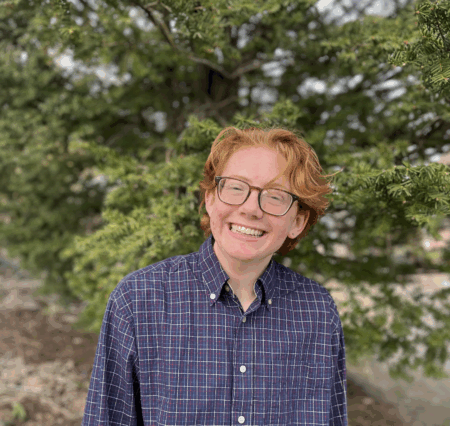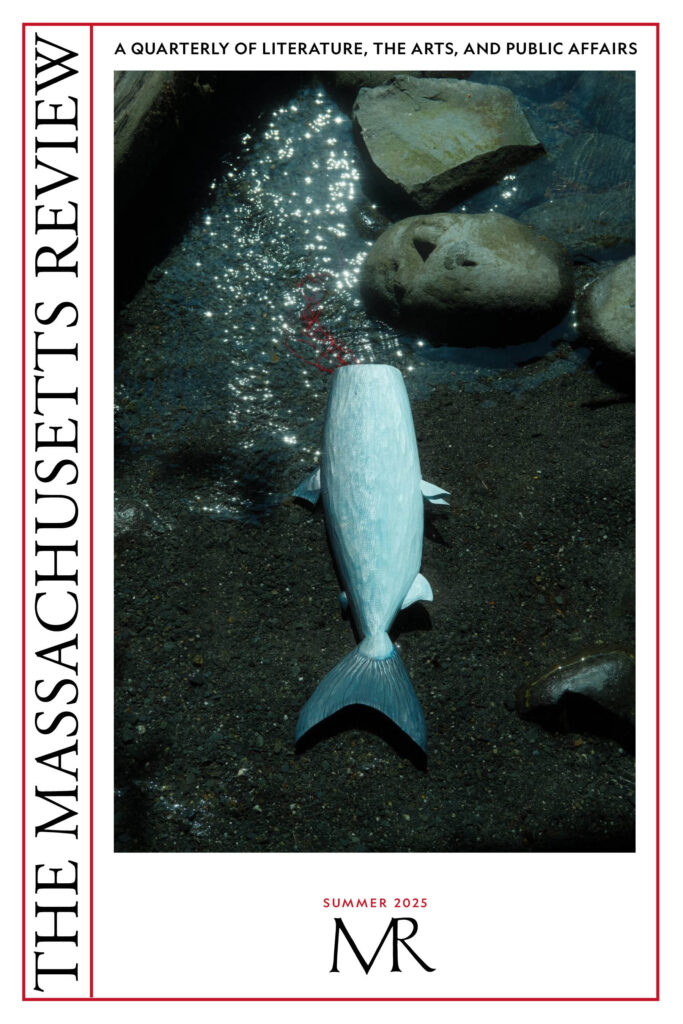10 Questions for Wilson Abby Comey

White wall. Poor connection. Bags under his eyes. Broad shoulders that stretch his T-shirt. Get a bigger T-shirt. Speak louder. Speak less. The swell of his bottom lip. The way he shortens my name. White wall. Brown bedpost. Handcuffs. Necktie. Fuck. Something. Something.
—from “Spring Roll,” Volume 66, Issue 1 (Spring 2025)
Tell us about one of the first pieces you wrote.
In seventh grade, I wrote a short story called “The Pen Incident.” It was based on a time when the boy I had a crush on tossed me a pen and I accidentally swatted it across a classroom. It got printed in our school’s literary magazine, and everyone knew who it was about, but I didn’t care. That’s when I learned that I could transform and expel my worst moments through writing.
What writer(s) or works have influenced the way you write now?
I always come back to Toni Morrison. Her talent is otherworldly. There are so many times I’ve scrawled in the margin beside a passage: holy shit. More recently, I’ve been awed by Garth Greenwell, Julia Armfield, Bryan Washington, and Weike Wang. Their works are delicate, honest, and unpretentious. Those are books I shake at the ceiling, shouting: I’d give anything to have written this.
What did you want to be when you were young?
I’ve wanted to be a writer ever since my second-grade teacher had us write stories and bind them into books. Mrs. Wilson was the best teacher I’ve ever had. She conjured my dream and made it a physical thing I could leaf through. I also briefly toyed with astrophysicist before I learned about all the math involved.
What inspired you to write this piece?
Last year, I reconnected out of the blue with an old friend who my mom always adored. I was also at the start of my transition at the time. I wanted to explore the tension, and reluctant resonance, between my desires for myself and my mom’s desires for me.
Is there a city or place, real or imagined, that influences your writing?
I love writing about churches. Imagining my childhood sanctuary is such a sensorially rich experience—the stained-glass windows, the boom of the organ, the ugly red carpet, the smell of old hymnals. And then there’s the emotional element—the silence of judgement, the embrace of community, the question of God’s presence or absence. All of it makes me itch to write.
Do you have any rituals or traditions that you do in order to write?
I have conversations with myself using the comments feature on Google Docs. I’ll write something like “You can do better than this” or “More! Yes! Good!” or “I can’t decide if this is insightful or complete nonsense.” I also like a good cup of tea. It’s an excuse to get up and busy yourself, and then an excuse to cradle something. Maybe that’s why over-steeped tea always shows up in my stories.
Who typically gets the first read of your work?
My family. There are a lot of them, and they have a wide range of literary tastes, so it’s nice to get everyone’s point of view. They’re also the people I trust most in the world.
If you could work in another art form what would it be?
I would love to be a singer. The only downside of medical transition has been losing my mezzo soprano voice. There are times, now, when the only emotional release I crave is to sing some melting refrain right in the money-spot of my former midrange belt. Instead, I usually end up writing. It’s not the same.
What are you working on currently?
I’m working on a novel about a breakup. It’s also about gender, because everything I write ends up being about gender, and the lines from Othello: “This sorrow’s heavenly; / It strikes where it doth love.” The story has been pouring out of me, so much so that the writing process feels like setting buckets beneath a leaking roof.
What are you reading right now?
Little Fish by Casey Plett and Beyond Personhood by Talia Mae Bettcher. Also, my friends would call me a poser if I didn’t admit that I am constantly consuming fan fiction.
WILSON ABBY COMEY is a writer and high school English teacher. His work has been featured in Flash Fiction Magazine, Variety Pack, Honeyguide Magazine, and I-70 Review. He’s been nominated for the Pushcart Prize and penned essays for The Washington Post and The New York Times. He lives in Washington, DC.



